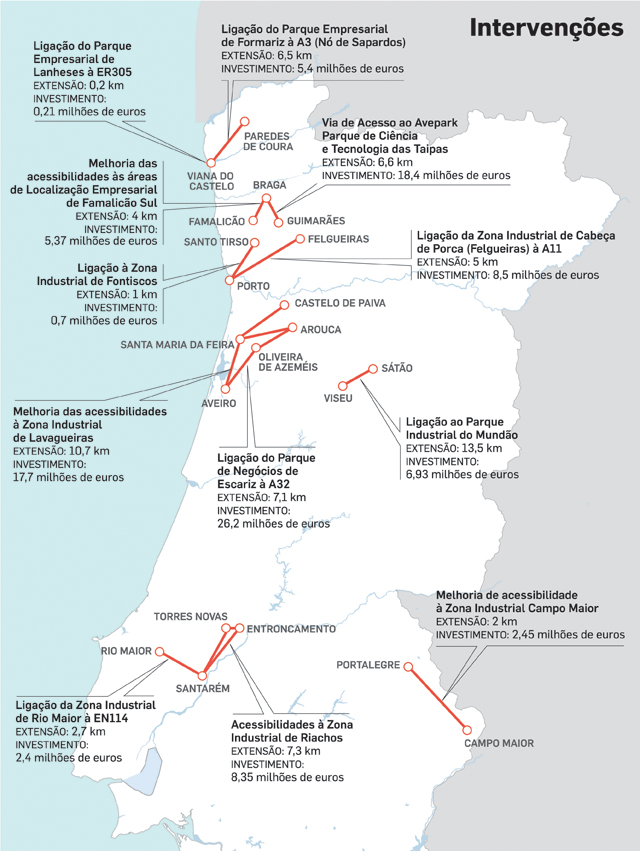 The Ministry of Planning and Infrastructure has presented what it terms as a new investment plan for roads and infrastructure, a spend of €180 million spread over the next four years.
The Ministry of Planning and Infrastructure has presented what it terms as a new investment plan for roads and infrastructure, a spend of €180 million spread over the next four years.
The spending will be on road links to and from business and industrial parks. Twelve such parks have been selected where the access roads will be improved to allow businsses to use the sites to better effect.
Other work will create or improve road networks within these business parks.
The Minister, Pedro Marques, said "The programme targets very dynamic business areas and will have a positive impact on companies.”
The majority of the investment will come from Infraestruturas de Portugal which will spend €102 million between now and 2021 in sorting out the roads that the government considers priority.
One project is to link the Escariz Business Park to connect with the A32, over seven kilometres away, something that would seem to be long overdue.
Other project s are for business parks in Fontiscos, Cabeza de Porca, Formariz, Gandra, Famalicão Sul, Lavagueiras, Mundão, Riachos, Campo Maior and Rio Maior.
According to the government, the objective of these investments is to reduce travel time to and from the business parks, thus reducing costs, while strengthening what is calls the ‘connectivity and intermodality of the regions,’ in a bid to disguise the regional bias of the spend as all these projects are north of Lisbon.
The plan also seeks ‘to boost the competitiveness of the business fabric but also to enhance the attractiveness of the business areas concerned by giving them more arguments to attract new investments.’
"It is a very objective and focused investment which fosters territorial cohesion," rambled Pedro Marques stressing that investing in the accessibility of business areas means "recovering the importance of these areas."
As for new business parks, €78 million will be invested between 2017 and 2021 in building new ones but this will be financed 85% by Brussels and 15% by local councils which first have to submit an application to the EU and then win the funds.
The fact that many business parks have poor or non-existent road links might explain why many have low occupancy. Others, such as the one in Tunes, Silves, right next to the IC1 but located over an awkward mini-roundabout and a bridge before two 90 degree turns, was built nearly ten years ago and is only 25% occupied while one in neighbouring Messines, on a major roundabout between the IC1 and the motorway junction, was full before it was finished.
Linking business sites to a decent road network will now cost many millions of euros when the siting often is down to local developers which should have ensured proper access before spending their money.
The local councils and the road company will have been asked to establish professional links to highways when planning permission was sought. It is this work that has not happened, leaving many induistrial parks stranded with poor quality links to arterial roads.
Marques is adept as putting a good spin on expenditure, making much of it look like he is doing us all a favour while trying to disguise a previous lack of investment. This ‘new spend’ can be seen as much needed remedial work dressed up as a wonderful example of socialist forward thinking.
The fact is that the work needs to get done, but a timeframe of four years is too long for the benefits to be felt during the current administration.























